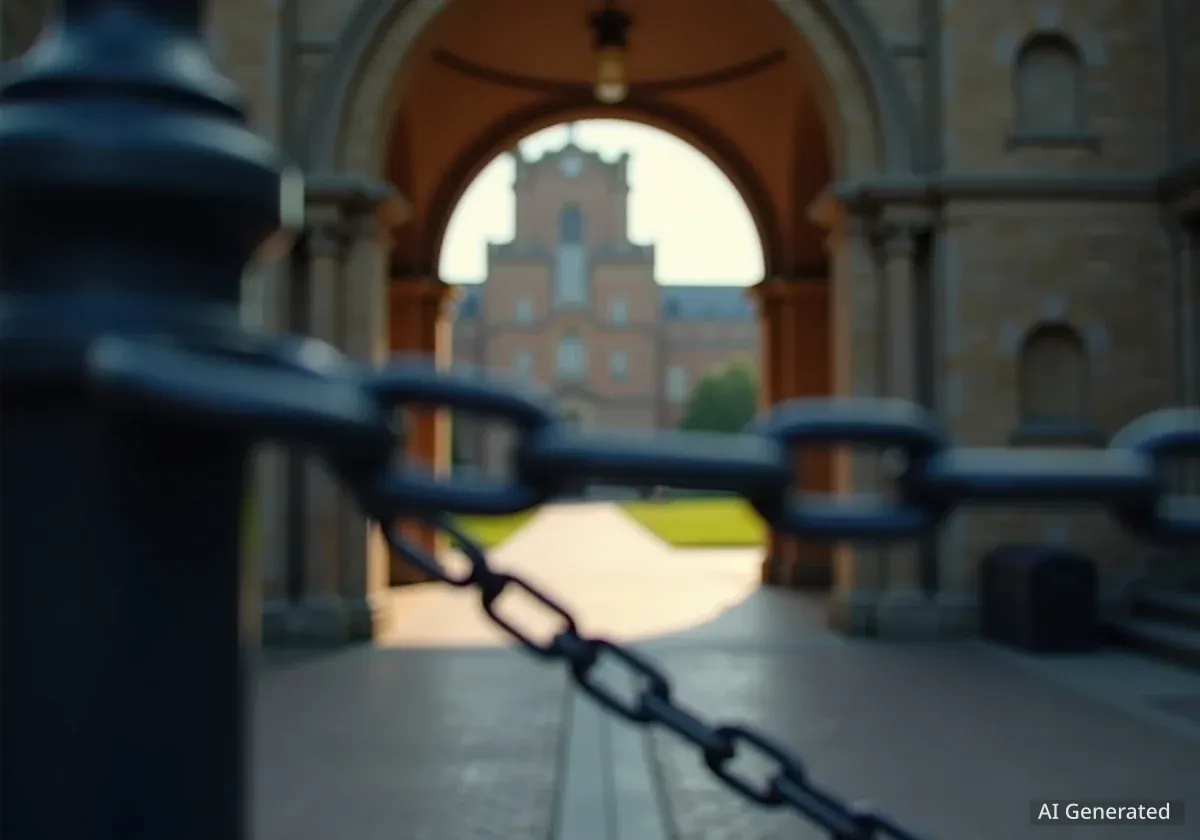Columbia University faces ongoing scrutiny and significant challenges regarding First Amendment issues, both on and off campus. The institution recently finalized a $200 million agreement with the federal government, following earlier threats to withdraw $400 million in funding. This situation highlights a complex dynamic between federal oversight, university autonomy, and the protection of free speech, particularly amidst pro-Palestinian protests.
Key Takeaways
- Columbia University secured a $200 million deal with the federal government after initial threats to cut $400 million in funding.
- The agreement mandates enforcement of policies against antisemitism and harassment, including rules on masked protesters and building access.
- The Knight First Amendment Institute expressed serious concerns about the deal, viewing it as a transfer of autonomy to the government.
- University leadership maintains that the agreement does not compromise academic freedom or governance.
- Faculty and students are actively engaged in discussions about free speech, academic freedom, and the role of journalism in challenging times.
Federal Scrutiny and Financial Agreements
Columbia University has been a focal point of federal attention regarding its handling of pro-Palestinian protests. In March, the Trump administration announced a plan to cancel $400 million in federal funds. This action stemmed from allegations that the university failed to adequately address antisemitism on campus during the Israel-Hamas war in Gaza.
By late July, the university reached a $200 million agreement with the administration. This deal aimed to resolve the dispute and secure a portion of the threatened federal funding. The agreement includes specific provisions that compel the university to enforce existing policies related to antisemitism and harassment.
Agreement Details
- Protests are generally barred inside academic buildings.
- Masked protesters must present university identification if asked.
- The university explicitly denies liability regarding the United States' allegations or findings.
Concerns Over University Autonomy
The Knight First Amendment Institute, an independent nonprofit operating out of Columbia, voiced significant concerns about the terms of the $200 million agreement. Jameel Jaffer, the institute's executive director, described the deal as an "astonishing transfer of autonomy and authority to the government."
Jaffer views the administration's focus on Columbia as part of a broader strategy targeting various institutions. He cited executive orders directed at private law firms and lawsuits against media outlets as examples. He believes that such deals could create a precedent, making it harder for other institutions to resist similar federal demands.
"When one university or law firm or news organization capitulates, it’s incrementally harder for the next institution to resist," Jaffer stated.
The Knight First Amendment Institute
Founded in 2016, the Knight Institute works to defend the freedoms of speech and the press. It has challenged executive actions across multiple administrations, including winning a federal court case against the Trump administration regarding the deportation of foreign-born student protesters.
Columbia's Stance on Governance and Academic Freedom
Despite the concerns raised by the Knight Institute, Columbia University leaders maintain that the agreement does not compromise the institution's fundamental independence. Interim President Claire Shipman issued a statement on July 23, asserting that Columbia's governance remains under its control.
A university spokesperson pointed to a specific clause in the agreement. This clause states that the deal should not be interpreted as granting the United States authority to dictate faculty hiring, university hiring, admission decisions, or the content of academic speech. Shipman emphasized that protecting these goals was the university's "north star" throughout the negotiations.
"The federal government will not dictate what we teach, who teaches, or which students we admit," Shipman affirmed.
The Impact on Journalism and Education
The Columbia Journalism School, widely recognized as one of the nation's leading programs, and the Columbia Journalism Review, a respected industry publication, are both housed within the university. Faculty members from the journalism school publicly criticized the detainment of Mahmoud Khalil in March after he led anti-Israel protests. They stated that such actions "represent threats against political speech and the ability of the American press to do its essential job."
Jelani Cobb, dean of the journalism school and publisher of the Columbia Journalism Review, described the university's deal with the administration as "the most pragmatic move" available. He acknowledged the broad concerns but expressed less worry about the future of the institutions he leads. Cobb highlighted the difficult environment universities navigate, calling it a "harsh terrain." He stressed that the core responsibilities of the journalism school have not changed.
Student Perspectives and Learning Opportunities
The challenging environment has, surprisingly, offered valuable learning experiences for students. Cobb noted that some journalism students found the situation "clarifying." They witnessed firsthand the crucial role journalism plays during contentious periods. For instance, the Columbia Daily Spectator, the student newspaper, received praise for its coverage of the pro-Palestine encampments and the subsequent police intervention.
Senior lecturer Anya Schiffrin, however, observed a "climate of self-censorship" among some student journalists. Despite this, she said her students are "absolutely delighted" to engage in discussions about the First Amendment, democracy, and academic freedom in her classes. Schiffrin believes the federal scrutiny has prompted important reflection and discussions across campus.
"I would say there’s a lot of us who are using the current moment to educate ourselves, as well as our students, about academic freedom and free expression," Schiffrin commented. "And I’d say I’ve learned a lot this year."
The ongoing debates at Columbia University underscore the significant pressures faced by academic institutions today. Balancing free speech, campus safety, and federal expectations creates a complex landscape for administrators, faculty, and students alike.





